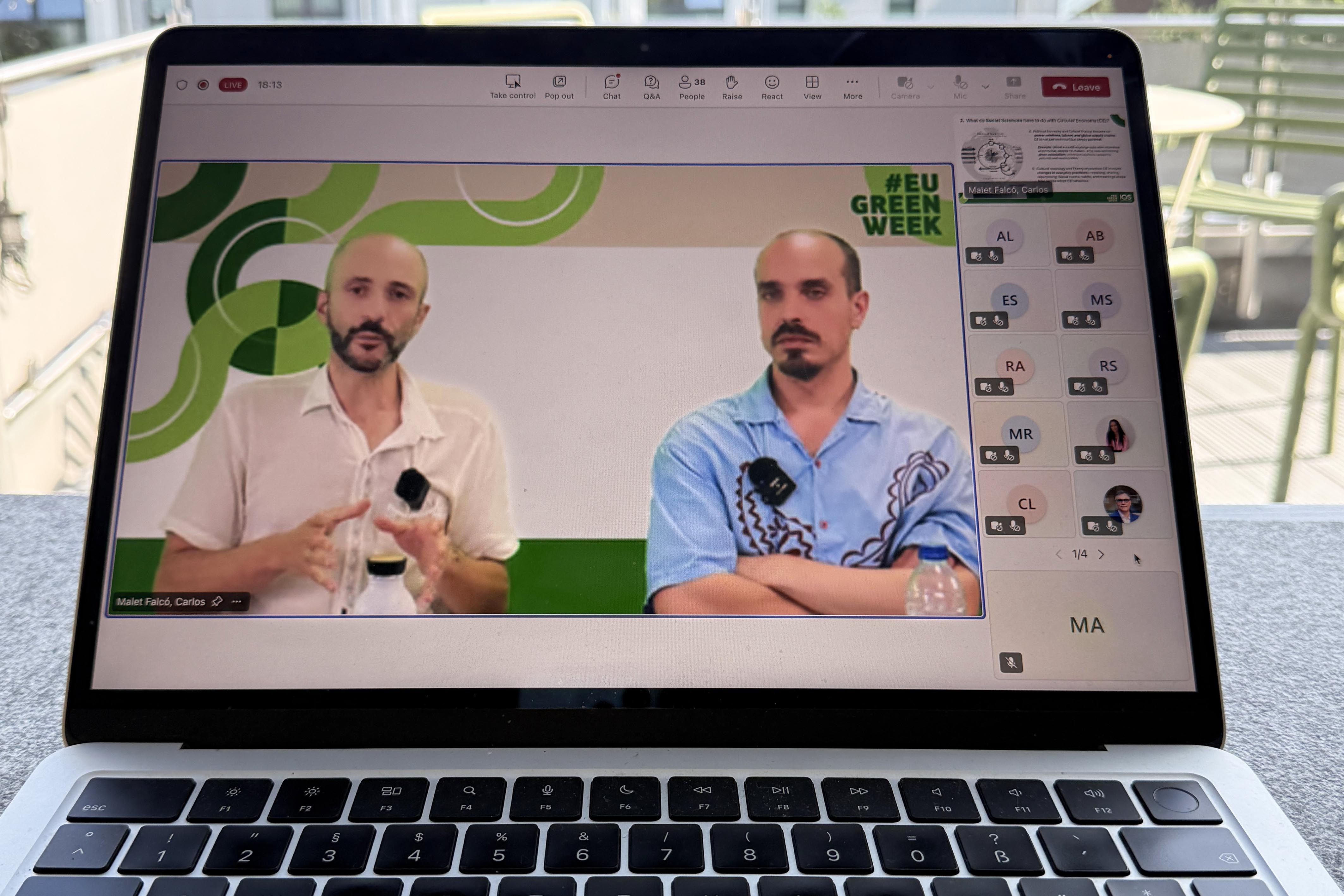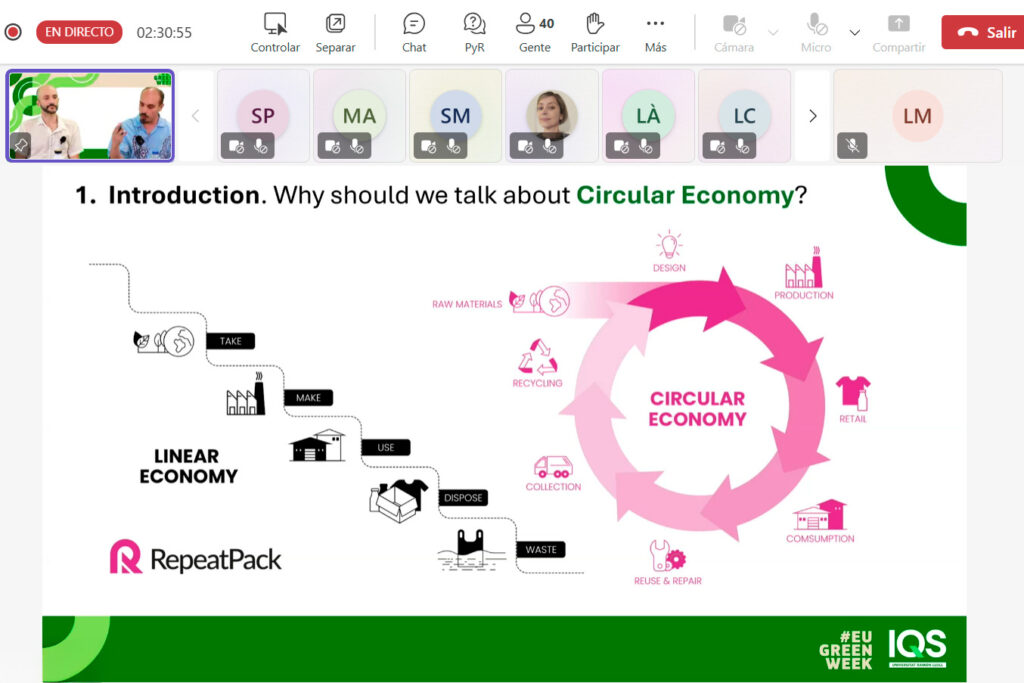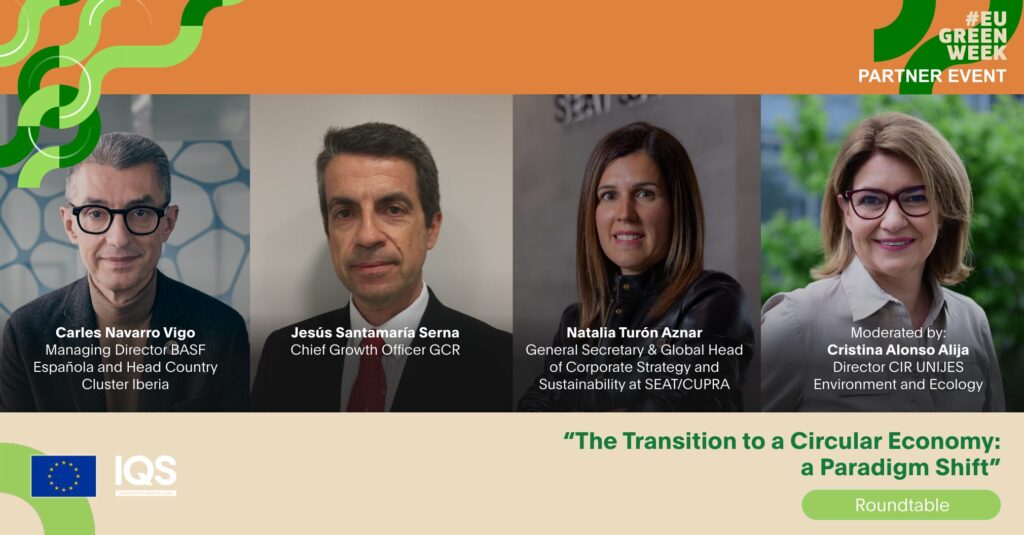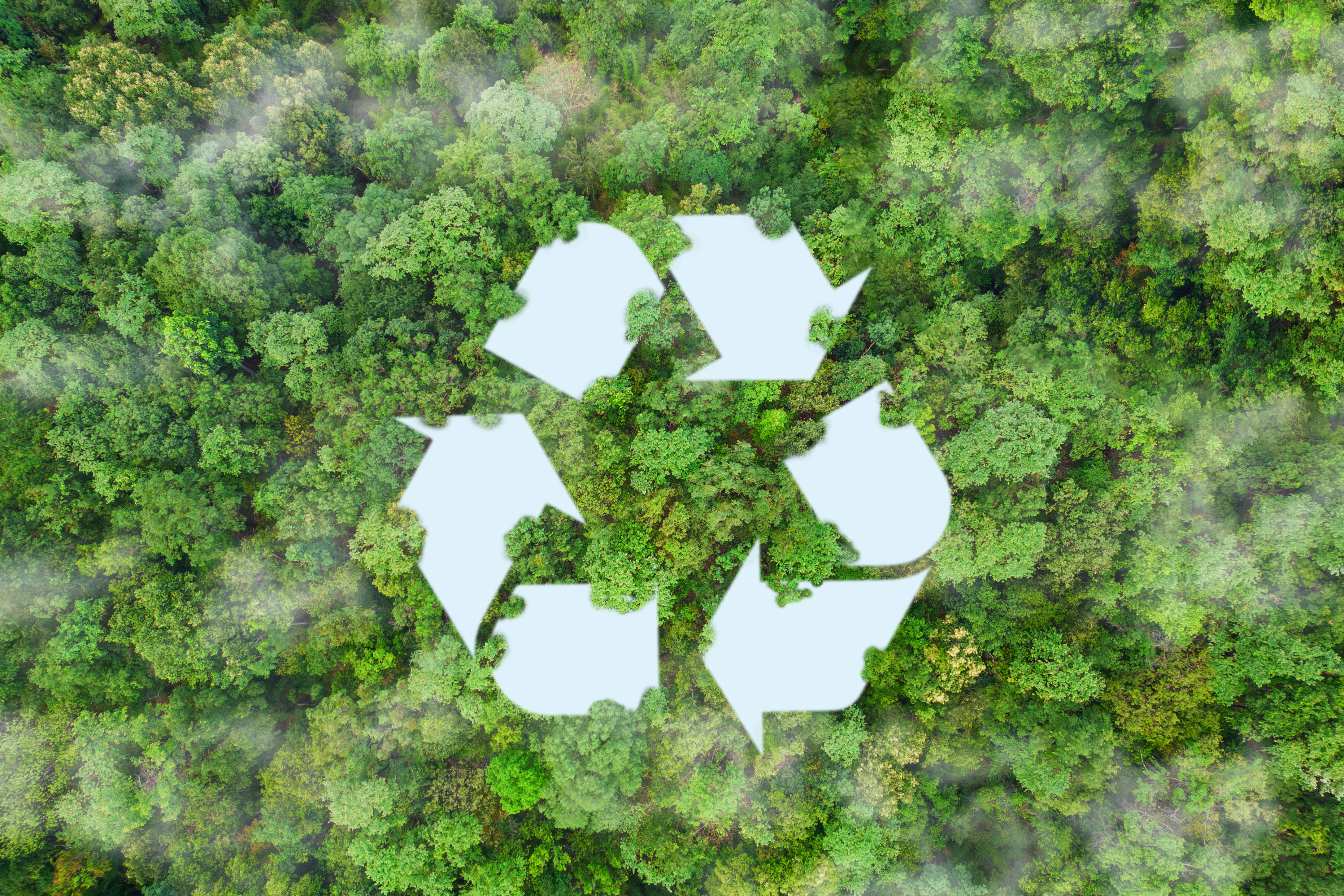Within the context of EU Green Week 2025, IQS-URL, as an official event partner, has inaugurated its programme of activities boasting the motto “Circularity: From theory to action” with a virtual masterclass taught by professors Yeray Asensio and Roberto Cantoni, experts in sustainability management and engineering. The session has made it possible to introduce the challenges and possibilities offered by the circular economy from different perspectives as a key tool for competitiveness and ecological transition.
From theory to action: IQS promotes circularity with knowledge and commitment


An economy that goes beyond recycling
Professor Roberto Cantoni, Associate Professor at the IQS School of Management, opened the event with a presentation on the fundamental principles of the circular economy, highlighting that this model is not limited to recycling or technical efficiency, but involves profound changes in organizational, regulatory, technological, and social cultures.
With his focus on social sciences, Cantoni presented the circular economy as a multidisciplinary strategy that is capable of generating resilience in value chains, reducing operating costs, and opening up new business opportunities. However, he also warned about structural obstacles such as consumer resistance, scalability limits, or the need for initial investment, all of which require comprehensive and multidisciplinary approaches.
Engineering, AI, and digitization for real projects
Next, Professor Yeray Asensio, Assistant Professor at the IQS School of Engineering and coordinator of the newMaster’s Degree in Circular Economy at IQS, focused his speech on the technical aspects that enable the successful implementation of large-scale circular models.
As an example, Asensio presented the redesign of a treatment plant to illustrate how circular principles can be translated into concrete industrial transformation processes. He stressed the importance of factors such as energy requirements, the application of artificial intelligence, the digitization of processes, and social acceptance, all of which are crucial for the success of circular projects in real environments.
Both speakers agreed on the need for any circular project to feature a threefold assessment: economic, social, and environmental. Tools such as Life Cycle Analysis (LCA) facilitate making informed decisions and quantifying the impact of each initiative. “We must design with circularity in mind,” they concluded, recalling that design must integrate circular principles from the beginning and not be applied as a superficial layer at the end of the process.
From debate to action: institutional dialogue and a circular challenge open to citizens

The roundtable entitled “The transition to a circular economy: a paradigm shift” is the following event that will be held by IQS within the framework of one of the most important environmental events on the continent promoted by the European Commission.
On 18 June at 5:00 pm, IQS will host a debate in a hybrid format (on campus in Barcelona and online) moderated by Dr Cristina Alonso Alija, director of the Ecology and Environment Research Centre at UNIJES.
The event will bring together influential voices from industrial, academic, and strategic fields to analyse the necessary shift from the linear economic model of “extract-produce-dispose” towards a circular, resilient, sustainable, and economically viable system. The speakers will explore how this transformation is already affecting industry, technological innovation, public policies, and daily life.
Participants include Natalia Turón Aznar, General Secretary & Global Head of Corporate Strategy and Sustainability at SEAT/CUPRA; Carles Navarro Vigo, General Director of BASF Española and Head of the Country Cluster Iberia; and Jesús Santamaría Serna, Chief Growth Officer at the strategic consulting group GCR.
This event aims to offer a realistic yet ambitious look at the structural changes that circularity implies and its essential nature for ensuring future prosperity and environmental regeneration.
In addition to the institutional dialogue, IQS has launched“IQS Circular Challenge 2025”, an international call open to people over 18 years of age from any country that invites them to think – and act – in a circular manner. The challenge is to create a video of up to two minutes in length that describes an action, project, or idea that puts any of the five principles of the circular economy into practice.
The Master’s Degree in Circular Economy: comprehensive education for sustainable leaders
IQS’s commitment to sustainability also translates into its educational offering through the launch of the new Master’s Degree in Circular Economy, a one-year interdisciplinary programme (60 ECTS) taught in English at the IQS campus in Barcelona.
With a practical and professional approach, the master’s degree combines engineering, management, innovation, and sustainability and is aimed at graduates and professionals with prior education in engineering, science, economics, or related areas.
The programme includes: participation in collaborative projects with companies, access to laboratories and advanced technology, specialization in key areas such as LCA, circular energy, digitization, sustainable finance, and business model design.
The master’s degree prepares its students to lead circular strategies in companies, consultancies, government, or non-profits, integrating technical, economic, and social dimensions with a transformational approach.










